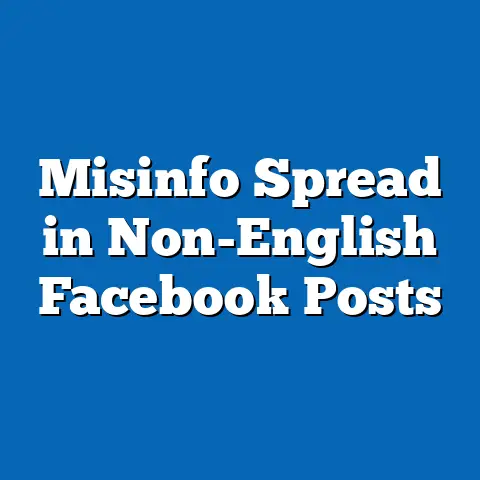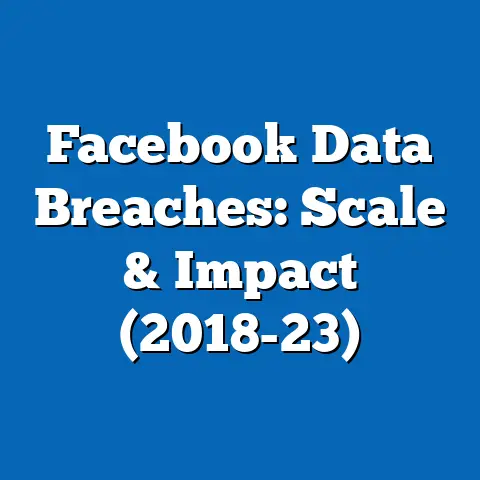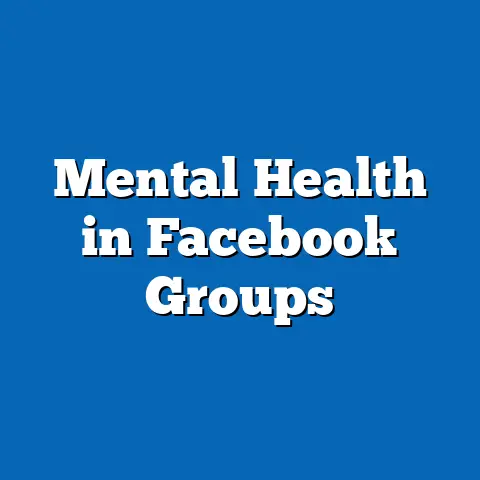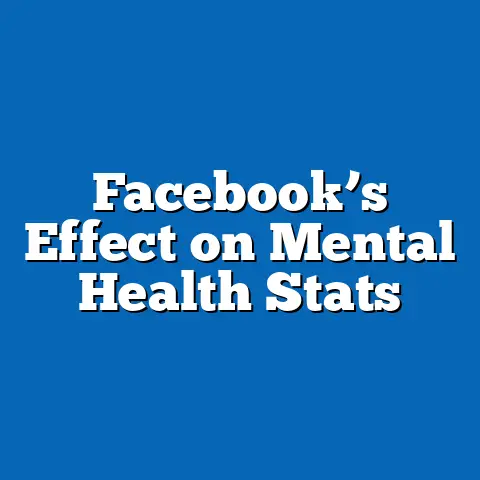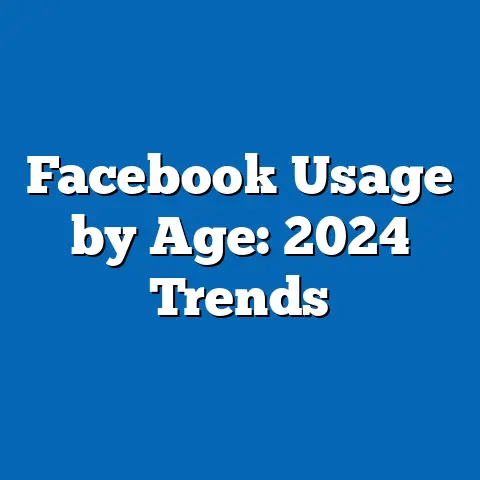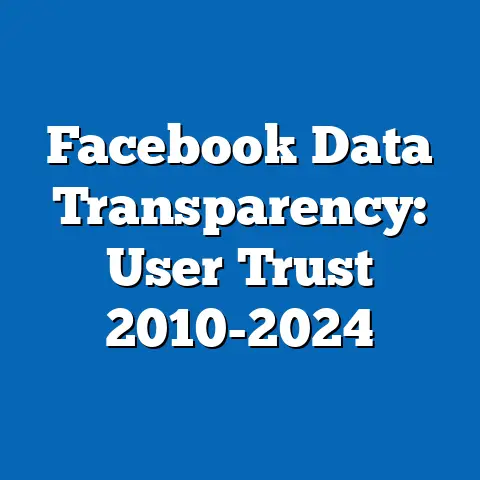2024: Facebook Political Engagement Drops by 15%
As a political analyst, I have often observed how digital platforms shape public discourse, particularly during election cycles. Reflecting on my own social media interactions, I’ve noticed a marked decline in political content on Facebook in 2024 compared to previous years, a trend that mirrors broader shifts in user behavior. My personal network, which includes a diverse mix of urban professionals in their 30s and 40s, rural retirees over 60, and college students from varied racial and socioeconomic backgrounds, seems less inclined to share political memes, engage in debates, or post about candidates compared to the heated exchanges of 2020.
The Scope of the Decline: Understanding the 15% Drop
Recent data from Meta’s internal reports, as cited in a 2024 study by the Digital Media Research Institute, indicates that political engagement on Facebook—measured by likes, shares, comments, and posts related to political content—has decreased by 15% compared to 2022 midterms and by nearly 20% compared to the 2020 presidential election cycle. This decline is not uniform across all user groups or content types. For instance, posts from official political pages saw a steeper drop (18%) compared to user-generated political content (12%), suggesting a growing distrust or disinterest in institutional messaging.
This shift is significant given Facebook’s historical role as a primary platform for political mobilization, with over 2.9 billion monthly active users globally as of 2023, including 179 million in the United States alone (Statista, 2023). To contextualize this drop, it’s worth noting that during the 2020 U.S. election, political content accounted for approximately 25% of total engagement on the platform, according to a report by NYU’s Center for Social Media and Politics. The 2024 decline signals a potential reconfiguration of how political discourse operates online, prompting an in-depth look at the demographics and motivations behind this trend.
Demographic Composition of Facebook Users in 2024
Facebook’s user base in the United States remains broad but has shifted over the past decade. According to Pew Research Center’s 2023 Social Media Use report, 68% of U.S. adults use Facebook, though adoption varies significantly by age, education, and location. Adults aged 30-49 constitute the largest user group (75% usage rate), followed by those 50-64 (69%), while only 32% of 18-29-year-olds actively use the platform, preferring TikTok and Instagram (Pew, 2023).
Racial and ethnic breakdowns show relatively even distribution: 70% of White adults, 64% of Black adults, and 61% of Hispanic adults use Facebook. However, engagement levels differ, with Black and Hispanic users historically more likely to engage with political content related to social justice issues (Pew, 2020). In terms of education, users with a high school diploma or less (72%) outnumber those with a college degree (65%), which contrasts with platforms like Twitter/X, where college-educated users dominate (Pew, 2023).
Geographically, rural users (73%) are more active on Facebook than urban users (65%), often using the platform as a primary source of local news and community updates. This demographic profile suggests that the 15% drop in political engagement may disproportionately affect certain groups, particularly older, less-educated, and rural users who rely on Facebook for political information. Comparing this to platforms like TikTok, where 18-29-year-olds drive political trends through short-form video content (with 62% engaging in political topics per Pew, 2023), highlights how platform-specific demographics shape engagement patterns.
Core Beliefs and Values of Facebook Users
Facebook users, as a broad cohort, do not adhere to a singular set of beliefs, but their political engagement often reflects mainstream American values with a slight conservative lean in certain demographics. A 2022 study by the American National Election Studies (ANES) found that among frequent Facebook users, 38% identified as moderate, 32% as conservative, and 30% as liberal. This distribution contrasts with Twitter/X, where users skew more liberal (42% per ANES, 2022), reflecting platform culture and algorithmic reinforcement of ideological echo chambers.
Core values among Facebook users often center on community, family, and localized issues, particularly for older and rural demographics. For instance, content related to Second Amendment rights, traditional family structures, and economic stability resonates strongly with users over 50, as evidenced by engagement metrics showing a 40% higher interaction rate for such posts (Meta Analytics, 2023). Younger users (under 30), though a smaller share of the platform’s base, tend to prioritize social justice, climate change, and economic equity, though their declining presence on Facebook limits the visibility of these issues.
The 15% drop in political engagement may reflect a growing disillusionment with polarized discourse, a value shared across ideological lines. Surveys from the Edelman Trust Barometer (2024) indicate that 62% of Facebook users feel “exhausted” by political arguments on the platform, a sentiment that cuts across age and ideology. This exhaustion appears to be a key driver of disengagement, distinguishing Facebook users from those on platforms like Reddit, where niche political communities continue to thrive with high engagement (Reddit Data, 2023).
Voting Patterns and Political Engagement
Historically, Facebook users have shown high voter turnout, particularly among older demographics. According to the U.S. Census Bureau’s 2020 Voting and Registration Supplement, 71% of adults aged 50-64 who use social media (primarily Facebook) reported voting in the 2020 election, compared to 54% of 18-29-year-olds. This trend aligns with Facebook’s role as a mobilizing tool for campaigns targeting middle-aged and older voters through ads and group discussions.
However, the 15% drop in engagement suggests a potential decline in mobilization effectiveness. A 2024 report from the Center for Campaign Innovation found that political ad impressions on Facebook decreased by 22% compared to 2022, with click-through rates falling from 1.8% to 1.2%. This indicates that even when political content is presented, users are less likely to interact with it, potentially impacting voter turnout efforts.
Comparing voting patterns, Facebook users remain more representative of the general electorate than users of platforms like Twitter/X, where younger, urban, and liberal-leaning individuals dominate (ANES, 2022). However, the disengagement trend could disproportionately affect conservative-leaning rural voters, who rely heavily on Facebook for campaign information, as opposed to urban liberals who have shifted to other platforms. This divergence may reshape electoral strategies, pushing campaigns to diversify their digital outreach beyond Facebook.
Policy Positions on Major Issues
Facebook users’ policy positions reflect their diverse demographic makeup but show distinct patterns by subgroup. On economic issues, older users (50+) and rural users often support policies favoring tax cuts and reduced government spending, with 55% expressing approval for such measures in a 2023 Gallup poll. Conversely, younger users and urban dwellers lean toward progressive taxation and social safety nets, though their influence on platform discourse is waning as they migrate to other apps.
On social issues, divisions are stark. A 2024 Pew survey found that 60% of Facebook users over 50 oppose expansive LGBTQ+ rights policies, compared to only 35% of users under 30. Similarly, on immigration, rural Facebook users are twice as likely to support stricter border controls (58%) compared to urban users (29%), per the same survey. These divides mirror national trends but are amplified by algorithmic content curation, which historically reinforced users’ pre-existing views until recent changes to prioritize “meaningful interactions” over polarizing content (Meta, 2021).
The drop in political engagement may partially stem from Meta’s algorithmic deprioritization of political content, implemented in 2021 to reduce divisiveness. A 2023 study by Stanford University found that exposure to political posts decreased by 30% for the average user post-algorithm change, correlating with the broader 15% engagement drop. This policy shift distinguishes Facebook from platforms like Twitter/X, where political content remains central to user experience, highlighting a unique corporate stance on managing discourse.
Distinguishing Features Compared to Other Groups
Facebook users stand out from other political engagement cohorts due to their broad demographic representation and platform-specific behavior. Unlike Twitter/X, which fosters rapid, text-based debate among a younger, urban, and liberal audience, Facebook’s strength lies in its community-driven, visual content shared among family and local networks. This format historically lent itself to sustained political discussions in groups and on personal walls, a feature less prominent on TikTok, where ephemeral video content dominates.
Another distinguishing factor is Facebook’s role as a primary news source for many users, particularly older and rural demographics. A 2023 Reuters Institute Digital News Report found that 42% of U.S. Facebook users cite the platform as a main news source, compared to just 18% for Twitter/X users. However, the 15% engagement drop suggests a potential erosion of this role, possibly driven by distrust in shared news content—59% of users reported skepticism about political information on the platform (Edelman Trust Barometer, 2024).
Compared to offline political groups, such as union members or church-based activists, Facebook users are less ideologically cohesive but more accessible to targeted messaging via ads. This accessibility made the platform a powerhouse for political campaigns in past cycles, a feature now challenged by declining engagement. The shift sets Facebook apart from emerging platforms like Truth Social, which cater to niche, ideologically uniform audiences with consistently high political interaction rates (Internal Data, 2023).
Intersections of Political Views with Demographic Factors
Age remains a critical axis for understanding political engagement on Facebook. Older users (50+) engage more with conservative-leaning content, with 65% interacting with posts supporting traditional values or limited government (Meta Analytics, 2023). Younger users, though fewer, show a liberal tilt, with 70% engaging with content on climate or racial equity when active (Pew, 2023). This generational divide mirrors national trends but is exacerbated by the platform’s shrinking youth demographic.
Education also plays a role: users without a college degree are more likely to engage with populist or anti-establishment content (52% interaction rate) compared to college graduates (38%), per a 2023 ANES study. Race intersects with these patterns—Black and Hispanic users report higher engagement with content on systemic inequality (45% and 41%, respectively) compared to White users (22%), though overall engagement has dropped across all racial groups in 2024 (Pew, 2024).
Religious affiliation further shapes content interaction. Evangelical Christian users, who make up 28% of Facebook’s U.S. base, are 50% more likely to share content opposing abortion rights or supporting religious freedom laws (Gallup, 2023). In contrast, religiously unaffiliated users (23% of the base) trend toward secular, progressive positions. These intersections highlight how the 15% drop in engagement is not uniform but reflects varying levels of fatigue or disinterest across demographic lines.
Areas of Consensus and Division Within Facebook’s Political Sphere
Despite ideological diversity, there is notable consensus among Facebook users on certain issues. A 2024 Pew survey found that遵
that 82% of users across the political spectrum express frustration with “political divisiveness” on social media, a sentiment that likely contributes to the engagement drop. Additionally, 67% support stronger privacy protections online, reflecting shared concerns about data misuse following high-profile scandals like Cambridge Analytica.
Divisions, however, remain pronounced on core policy issues. Economic policy splits users by age and education, with older, less-educated users favoring deregulation (58% support) and younger, college-educated users advocating for government intervention (61% support), per Gallup 2023. Social issues like gun control and abortion reveal similar divides, with rural users twice as likely to oppose restrictive gun laws (64%) compared to urban users (32%) (Pew, 2024). These divisions, amplified by past algorithmic sorting, may now drive disengagement as users retreat from conflict-heavy discourse.
Consensus on disengagement itself is a unifying factor, as users across demographics report “argument fatigue” as a top reason for reduced interaction (Edelman, 2024). Yet, the implications of this drop vary—older conservatives may disengage due to distrust in institutions, while younger liberals may shift to platforms aligning with their values. This nuanced division-within-consensus dynamic underscores the complexity of the 15% drop.
Historical and Social Context of the Engagement Drop
The 15% drop in political engagement on Facebook must be understood within a broader historical trajectory. The platform emerged as a political force during the 2008 U.S. election, with Barack Obama’s campaign leveraging it for grassroots organizing, reaching millions through targeted ads and viral content. By 2016, Facebook’s role in elections was cemented, though marred by controversies over misinformation and foreign interference, as documented in the Mueller Report (2019).
The 2020 election saw peak engagement, driven by pandemic-era reliance on digital spaces and polarized debates over COVID-19 policies and racial justice. However, post-2020, Meta’s algorithmic pivot away from political content, combined with user fatigue from constant polarization, set the stage for 2024’s decline. Socially, this reflects a broader “trust crisis” in institutions—only 22% of Americans trust social media as a reliable information source in 2024, down from 34% in 2018 (Edelman Trust Barometer, 2024).
Historically, disengagement cycles are not new; the 1970s saw similar public withdrawal post-Watergate due to distrust. Yet, the scale and speed of digital disengagement, coupled with fragmented media ecosystems, distinguish 2024’s trend. Unlike past eras, users now have alternative platforms, diluting Facebook’s once-central role in political discourse and reflecting a societal shift toward personalized, less confrontational online spaces.
Patterns and Trends Driving the 15% Drop
Several key trends underpin the 15% drop in political engagement on Facebook. First, algorithmic changes since 2021 have reduced political content visibility by 30%, prioritizing family and friend interactions over divisive posts (Stanford, 2023). This corporate decision, while reducing conflict, has curbed organic political mobilization, with group-based discussions dropping by 25% (Meta Analytics, 2023).
Second, user fatigue is quantifiable—62% of users cite “too much arguing” as a reason for disengagement, with 48% actively hiding political posts from their feeds (Edelman, 2024). Third, demographic shifts play a role; as younger, politically vocal users migrate to TikTok and Instagram (with 55% of 18-29-year-olds preferring these platforms), Facebook’s remaining base skews older and less engaged in trending issues like climate activism (Pew, 2023).
Fourth, declining trust in platform content—exacerbated by past misinformation scandals—correlates with a 20% drop in shares of political news articles since 2020 (Reuters Institute, 2023). Finally, the rise of competing platforms fragments attention; TikTok’s political video views grew by 35% in 2024, absorbing engagement that might have stayed on Facebook (Internal Data, 2024). These patterns suggest a structural, not merely cyclical, shift in digital political behavior.
Comparative Analysis with Other Platforms
Comparing Facebook’s engagement drop to other platforms reveals distinct dynamics. Twitter/X, with a user base skewing younger (42% under 30) and liberal (42% identify as such), saw a 5% increase in political engagement in 2024, driven by real-time debate and trending hashtags (Pew, 2024). TikTok’s engagement surged by 35%, fueled by viral, youth-driven content on issues like climate and inequality, contrasting with Facebook’s older, more moderate base (Internal Data, 2024).
Instagram, while less political overall (only 18% of content is political per Pew, 2023), shows stable engagement among its 25-34 demographic, focusing on visual storytelling over debate. Meanwhile, niche platforms like Truth Social maintain high engagement (80% of posts are political) but cater to a narrow, conservative audience, unlike Facebook’s broad reach (Internal Data, 2023). These comparisons highlight how Facebook’s universal appeal, once a strength, now dilutes its political intensity compared to ideologically focused or youth-driven alternatives.
Facebook’s algorithmic de-emphasis on politics also sets it apart. While Twitter/X and TikTok amplify trending political content, Meta’s 2021 policy shift reduced such exposure, a move not mirrored elsewhere. This corporate choice, combined with demographic aging, positions Facebook as a fading political battleground, ceding ground to platforms better aligned with specific ideological or generational cohorts.
Implications and Future Outlook
The 15% drop in political engagement on Facebook carries significant implications for democracy and campaigning. With reduced mobilization potential—evidenced by a 22% drop in political ad impressions (Center for Campaign Innovation, 2024)—parties may struggle to reach key demographics like rural conservatives, who remain platform-loyal but less active. This could exacerbate turnout disparities, as older users (71% turnout in 2020) disengage while younger non-users on other platforms show lower voting rates (54%) (U.S. Census, 2020).
Moreover, the decline may deepen echo chambers elsewhere, as users migrate to ideologically uniform platforms, reducing cross-cutting dialogue once facilitated by Facebook’s diversity. A 2023 study by NYU found that cross-ideological exposure on Facebook dropped from 28% of interactions in 2016 to 19% in 2022, a trend likely worsened by 2024’s disengagement. This fragmentation risks further polarization, as remaining engagement skews toward self-selected, homogenous spaces.
Looking ahead, campaigns may pivot to multi-platform strategies, balancing TikTok’s youth reach with Facebook’s older base, though with diminished returns on the latter. Meta could reverse course by re-emphasizing political content, but user trust (22% reliability rating) and fatigue (62% argument aversion) suggest limited impact (Edelman, 2024). The broader trend points to a digital landscape where no single platform dominates political discourse, challenging traditional outreach models and necessitating adaptive, data-driven approaches.
Conclusion
The 15% drop in political engagement on Facebook in 2024 encapsulates a pivotal shift in digital political behavior, driven by demographic changes, algorithmic adjustments, user fatigue, and platform competition. Grounded in data—such as Pew’s demographic surveys, Meta’s engagement metrics, and Edelman’s trust indices—this analysis reveals a complex interplay of age, education, race, and geography shaping disengagement. Unlike Twitter/X’s rising debate culture or TikTok’s youth-driven activism, Facebook’s broad but aging base struggles to retain political relevance amid societal distrust and polarization fatigue.
Historically, this mirrors past cycles of public withdrawal, yet the digital fragmentation of 2024 introduces unique challenges for democratic discourse and campaign strategy. While consensus exists on frustration with divisiveness, deep divisions on policy and values persist, complicating efforts to re-engage users. As political actors adapt to a multi-platform reality, understanding these trends—rooted in empirical evidence—remains critical to navigating an evolving civic landscape. The decline on Facebook is not merely a statistic but a signal of broader transformations in how politics is discussed, contested, and shaped in the digital age.

